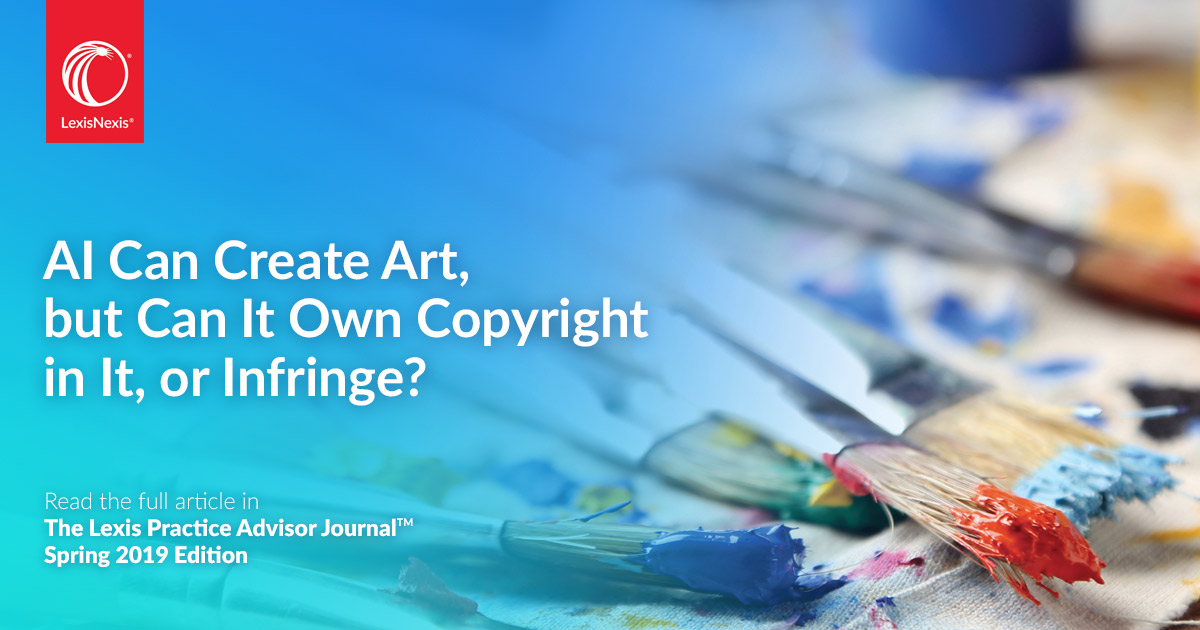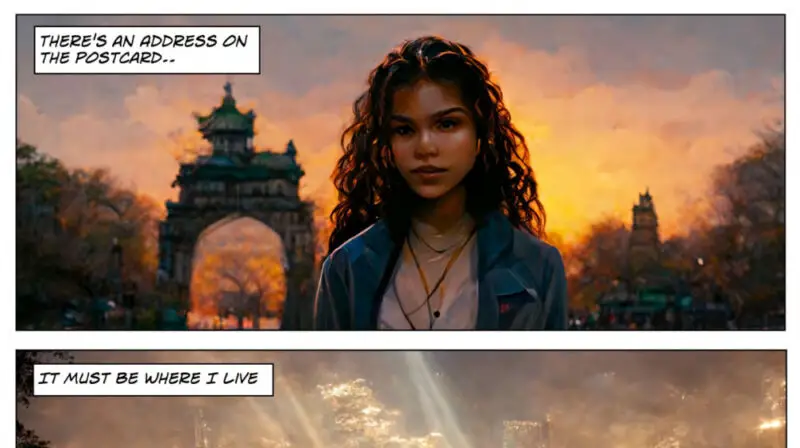Yes, AI art can be copyrighted. Copyright law protects original works of authorship, including paintings, sculptures, and other artworks. Because AI art is created by a computer program, it is considered a type of literary work and is therefore protected by copyright law.
Yes, AI art can be copyrighted. In fact, any work of art created by artificial intelligence can be protected under copyright law. This includes paintings, sculptures, and other visual works of art.
However, it should be noted that the copyright protection for AI-created art is not automatic. The artist must register their work with the Copyright Office in order to receive protection.
The AI Art Copyright Problem
Can I Use Ai Art Commercially?
Commercially, AI art can be used in a number of ways. For example, an artist could create an entire series of AI generated art and then sell the prints or digital files. Alternatively, an artist could use AI to generate a unique piece of art for a client and then charge for both the artwork and the time spent creating it.
In either case, it is important to have a contract in place that stipulates who owns the rights to the artwork and how it can be used.
Does Ai Art Break Copyright?
There is no definitive answer to this question as it depends on a number of factors, including the specific artwork in question and the country in which it is created. However, some experts believe that AI-generated art may be protected by copyright in certain circumstances.
For example, if an AI program creates a piece of art that is original and has been independently created, then it is possible that copyright could apply.
In addition, if the creator of the AI program can prove that they have put in a significant amount of creative effort into developing the software, then they may also have a case for copyright protection.
However, it should be noted that copyright law varies from country to country, so it is always advisable to seek legal advice before relying on any particular interpretation.
Am I Allowed to Use Ai Art?
Yes, you are allowed to use AI art. There are no copyright restrictions on using or creating art with artificial intelligence. You can use AI art for any purpose, including commercial purposes.
Who Owns the Copyright on Ai-Generated Art?
This is a complicated question with no easy answer. There are a few different scenarios that could play out, each with its own set of copyright issues.
If the artist is the one who created the AI program that generated the art, then they would most likely be considered the author of the work and would own the copyright.
However, if someone else created the AI program and the artist simply used it to generate their artwork, then things get a bit more complicated. In this case, it may be up to a court to decide who owns the copyright on the resulting work. The court would likely look at factors such as who had control over the creation of the work, who contributed what to the final product, and whether or not there was an intention for there to be a joint authorship.
Another possibility is that even if the artist does not own the copyright to their AI-generated art, they may still have some sort of moral rights in relation to it. For example, in some countries an artist has a right to prevent others from modifying or destroying their work without their permission. This right could potentially extend to works generated by AI if it can be shown that they are sufficiently similar to traditional works of art protected by moral rights laws.
Ultimately, there is no clear answer as to who owns the copyright on AI-generated art. It will likely depend on all of these factors and possibly more that have yet to be considered by courts or legislatures.

Credit: www.lexisnexis.com
Can Ai Art Be Copyrighted Reddit
Yes, AI art can be copyrighted. In order to copyright AI art, the creator must have a human author who is responsible for the final work. The Copyright Office will not register works produced by machines or software unless there is a clear indication that a human being was involved in their creation.
Does Ai Art Steal Art
Ai Art is a form of art created by artificial intelligence. While some people believe that this type of art can never truly be considered art because it is not created by humans, others believe that Ai Art can be just as valid as any other form of art. One thing is for sure, Ai Art is definitely stealing the spotlight in the art world.
There are many different ways to create Ai Art. Some artists use algorithms to generate images or patterns, while others use machine learning to create more realistic images. Whatever the method, one thing is for sure – Ai Art is definitely unique.
And because of its uniqueness, it has sparked a lot of debate about whether or not it should be considered “real” art.
Some people argue that Ai Art is not really art because it does not come from a human mind. They say that true art comes from creativity and imagination, which are things that computers cannot really replicate.
Others argue that Ai Art can be just as valid as any other form of art because it still requires skill and talent to create something beautiful or meaningful.
At the end of the day, there is no right or wrong answer to this debate. It ultimately comes down to personal opinion.
Whether you believe that Ai Art is real art or not, there’s no denying that it’s definitely fascinating – and it’s only going to become more so in the future!
Is Ai Art Legal
Ai Art Legal is a website that provides detailed information about the legal aspects of Ai Art. The website covers topics such as copyright, patents, and trademarks. It also includes a forum where users can ask questions and share their experiences.
Who Owns Copyright in Works Created by Artificial Intelligence
As artificial intelligence (AI) becomes more prevalent, the question of who owns the copyright in works created by AI is becoming increasingly important. There are a few different scenarios to consider when it comes to AI and copyright.
If an AI system is programmed to create a work without any human input, then the AI system would be considered the author of that work and would own the copyright in it.
This is similar to how works created by computers are typically owned by the person who programmed the computer.
However, if a human creates a work with the help of an AI system, then things become more complicated. In general, the human author would be considered the owner of the copyright in such a work, but there could be exceptions depending on exactly how much input the AI system had in creating the work.
For example, if an AI system merely provided suggestions that were ultimately rejected by the human author, then it’s likely that the human would still be considered the sole author and owner of any resulting work.
Can Ai-Generated Art Be Sold
In the past decade, artificial intelligence has made significant advancements in generating realistic images and videos. This technology is now being used to create artworks that are indistinguishable from those created by humans.
Some people argue that AI-generated art can never be sold because it lacks the uniqueness of a human artist’s vision.
Others believe that AI-generated art is valuable and should be treated like any other work of art.
There are a few companies that are already selling AI-generated art. Obvious is one such company; it was founded by Pierre Barreau, who is also the co-founder of DeepMind, an AI research lab owned by Google.
Obvious uses algorithms to generate portraits that look like they were painted by human artists from different periods in history.
Another company called Artomatix sells software that allows anyone to generate 3D images and videos with the help of artificial intelligence. The company was founded by Erick Miller, who is also a researcher at MIT’s Computer Science and Artificial Intelligence Laboratory (CSAIL).
So far, there has been no consensus on whether or not AI-generated art can be sold. However, as more companies enter this market and more people become familiar with this type of artwork, it is likely that a decision will be reached in the near future.
Ai Art Lawsuit
Ai Art Lawsuit
In 2019, the artist AI created a piece of art using a Generative Adversarial Network, or GAN. The artwork, which consisted of two pieces of paper with images generated by the GAN on them, was sold at auction for $10,000.
However, the artist who created the GAN, Robbie Barrat, later sued AI over copyright infringement. Barrat claimed that he had not given AI permission to use his work in creating the art piece, and thus AI did not have the right to sell it.
Can an AI-generated image be copyrighted? And if so, who owns the copyright – the creator of the algorithm or the person who uses it to create something new? These are questions that will likely be answered in time as AI becomes increasingly prevalent in society and more cases like this one arise.
For now, though, they remain unresolved – meaning that anyone using AI to create artwork should be aware of the potential legal implications involved.
Is Ai Art Public Domain
Yes, AI art is public domain. This means that anyone can use or modify it without asking for permission or paying royalties. However, some artists may not want their work to be modified, so it’s important to respect their wishes.
Ai Art Copyright Law
Ai Art Copyright Law
In recent years, the use of artificial intelligence (AI) in art has skyrocketed. This new form of art, often referred to as “ai-art,” is created using algorithms and software that create or modify images, videos, and other forms of digital media.
Because ai-art is so new, there are currently no specific laws governing its copyright protection. As a result, many artists who create ai-art are unsure about how to protect their work under copyright law.
The good news is that copyright law does protect works of original authorship, regardless of the medium in which they are created.
So long as an artist can show that they created the work themselves (or had someone else create it for them), and that the work contains some level of originality, it should be eligible for copyright protection.
However, because ai-art is created using algorithms, it can be difficult to prove that an artist is the sole author of a particular work. In addition, because ai-art often incorporates preexisting elements (such as images or videos), there may be questions about whether the final product is truly original.
These issues will likely need to be sorted out on a case-by-case basis as more and more ai-art enters the marketplace.
In the meantime, artists who create ai-art should consider registering their work with the U.S . Copyright Office .
Registration is not required for copyright protection, but it can give artists some extra legal firepower if they ever need to enforce their rights in court. Artists should also keep good records of when they created their works and how they were created (e.g., by keeping copies of source code or algorithm specifications). This will help establish authorship in case there is ever any doubt down the road.
Conclusion
Yes, AI art can be copyrighted. In fact, any work of art created by a machine can be copyrighted as long as it meets the requirements for copyright protection. These requirements include that the work is original and that it has been fixed in a tangible form (such as a painting or sculpture).


